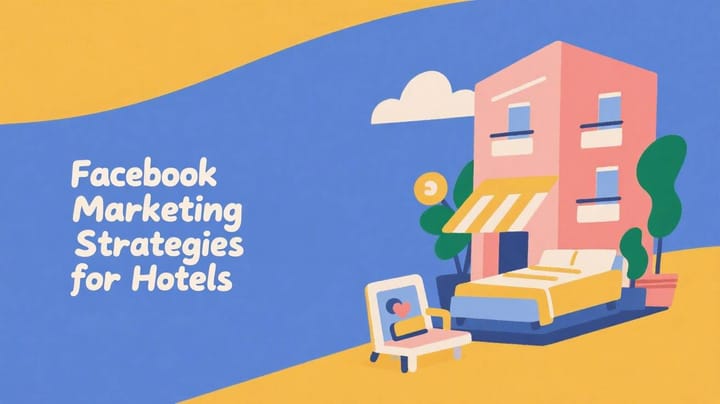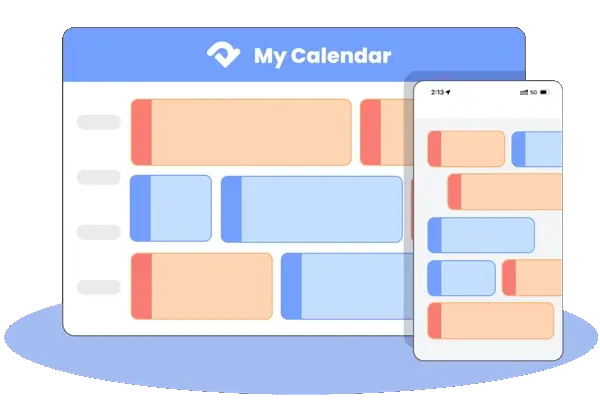In the digital age, travelers often spend time planning their trips on social media. Facebook has become a vital tool for hotels to increase revenue, with over 3 billion monthly active users, providing direct access to all types of potential guests - whether it's a family planning a weekend getaway or a business person looking for comfortable accommodation.
But simply opening a Facebook page is not enough. Hotels need to develop a strategy to convert likes and clicks into actual bookings and higher revenue. Here's how to effectively use Facebook to increase hotel revenue
Optimize Your Facebook Page
Your Facebook presence works like a virtual concierge desk. Travelers form opinions fast, so make yours count. Start with the basics everyone needs:
- Accuracy matters: Double-check your address, phone number, and check-in times. An outdated phone number means lost bookings.
- Booking link front-and-center: Place your reservation link where eyes land first. Don’t make people search for it.
- Show, don’t just tell: Use photos that make travelers feel something. Capture that sunset view from the terrace, the fluffy robes in suites, or steam rising from breakfast pancakes. Grainy lobby shots won’t sell rooms.
- Location sells: Include 2-3 standout shots of nearby attractions – the beach path across the street, that famous museum two blocks away. Travelers choose locations first.
- Tell your story: In your ‘About’ section, explain what makes nights at your place different. Boutique charm? Family fun hub? Spa sanctuary? Match your tone to your vibe – warm for a B&B, polished for luxury.
- One-click booking: That “Book Now” button? It’s your digital receptionist. Test it weekly. Broken links mean guests walk out the virtual door.
Create Engaging Content to Keep Guests Interested
Engaging content is the heart of any successful Facebook strategy. It grabs your audience’s attention, builds trust, and makes them pick your hotel over others. The key? Share content that truly connects with your target guests – whether they’re couples, families, or solo travelers.
- Show Behind-the-Scenes Moments:
Share glimpses behind the curtain. Think of a chef carefully preparing your signature dish, housekeeping staff making beds with attention to detail, or a front desk agent helping a guest plan their day. These posts make your hotel feel more human and show the effort behind creating great experiences. - Share Useful Local Tips:
Travelers crave local knowledge! Post about the best nearby coffee shops, hidden gems, or upcoming events. For example, if there’s a downtown music festival, create a post about it and offer a special “Festival Package” that includes tickets and late checkout. This positions your hotel as a helpful local guide, not just a place to sleep. - Use Guest Content (UGC):
This is gold! Encourage guests to share their photos and stories using your hotel’s hashtag (like #StayAtSunnyBeachHotel). Then, pick the best ones (always ask permission first!) and share them on your page. Real guest photos feel authentic – potential guests trust other travelers more than polished ads. It also builds a community, making past guests feel valued and encouraging new ones to join in. - Leverage Stories and Reels:
These formats are perfect for quick, engaging content.
Stories: Great for flash deals (“Last-minute discount: 20% off tonight’s stay!”) or counting down to upcoming events.
Reels: Use these short, music-backed videos to share quick tips (“5 things to pack for your beach vacation”) or fun hotel moments (guests laughing by the pool). Facebook’s algorithm loves these, helping you reach more people.
Use Paid Ads to Find the Right Guests
Paid Facebook ads help you reach people who are actually likely to book your hotel. Instead of wasting money showing ads to everyone, you can target specific groups. This means your message gets in front of the right eyes.
Start with your goal. What do you want? Fill empty rooms on slow weekends? Promote your new spa? Get more business travelers? Your ad should match that goal. For example, if you need more weekend guests, create an ad for a “Weekend Escape Package” that includes breakfast.
- Pick the best ad type.
Carousel ads work well to show different things. You could feature a family room, a romantic suite, and your restaurant – each picture linking to its own booking page.
Video ads tell a story. Show a guest arriving, having a great time, and leaving happy. Keep videos short – under 30 seconds – so people watch them.
- Targeting is the real power.
Demographics: Target by age, gender, or location. If your hotel is in Miami, aim for people in nearby cities like Orlando or Tampa who might want a weekend trip.
Interests: Reach people interested in things like “luxury travel,” “family vacations,” or “business travel.”
Retargeting: Show ads to people who’ve already searched for hotels in your area or visited your website. They’re already interested!
- Try Lookalike Audiences.
This is a smart trick. Facebook finds people who are very similar to your current guests – they share similar interests, age, location, and habits. Since they’re like your happy customers, they’re much more likely to book too.
- Set your budget.
You decide how much to spend. Choose a daily amount or a total for the campaign. You can change it anytime. Start small, test different ads, and put more money into the ones that work best. For instance, if your ad for business travelers gets more bookings than your family ad, shift your budget to the business one.
Track and Optimize Your Results
To get real results from Facebook, you need to know what’s working and what isn’t. That’s where Facebook Pixel comes in. It’s a free tool – just add a small piece of code to your hotel website. It tracks what people do after clicking your ads, like viewing a room, adding a booking to their cart, or actually making a reservation.
With Pixel data, you’ll see exactly which ads bring in the most bookings. Then you can adjust your approach. For example, if you notice ads targeting 25-35 year-olds get more bookings, focus more on that group. Pixel also helps you retarget – show ads to people who visited your site but didn’t book, maybe with a special offer like “Finish booking now and get 10% off.”
📘Keep an eye on these key numbers to see how you’re doing:
Engagement Rate (likes, comments, shares): This shows if people actually like your content. High engagement? Good sign – they’re interested.
Click-Through Rate (CTR): This tells you how many people click your ads or links. Low CTR? Time to tweak your ad text or pictures.
Booking Conversion Rate: This is the big one! It shows how many clicks turn into actual bookings. Your goal is to boost this number over time by testing different ad versions.
Pro Tips to Boost Results
Post regularly
Share updates 3-5 times weekly to stay visible. Quality matters more than quantity. Short on time? Use scheduling tools to plan ahead.
Reply quickly
Answer comments and messages fast. Whether it’s a Wi-Fi question or a complaint, responding shows you care. Good replies build loyalty. Fixing problems can turn unhappy guests into regulars.
Team up locally
Work with nearby restaurants, tour companies, or event spots. Promote each other. Example: A restaurant shares your romantic dinner package post, and you share their new menu. This introduces your hotel to their customers.
Seasonal deals work
Offer discounts during slow seasons. Create holiday packages like Christmas or Valentine’s specials. A “Summer Family Fun” deal with free breakfast and kids’ activities attracts families during breaks. A “New Year’s Eve Gala” package draws couples celebrating.
Conclusion
It’s not just social media—it’s a sales tool. Optimize your page, share engaging content, run targeted ads, and track results. These steps bring more guests, increase direct bookings, and boost revenue. Even small marketing budgets can use these tips.
Success takes time. What works for others might not work for you. Try different approaches, check your data, and adjust your plan. With the right strategy, your hotel can stand out and turn Facebook users into loyal guests. Start today to grow your revenue.

